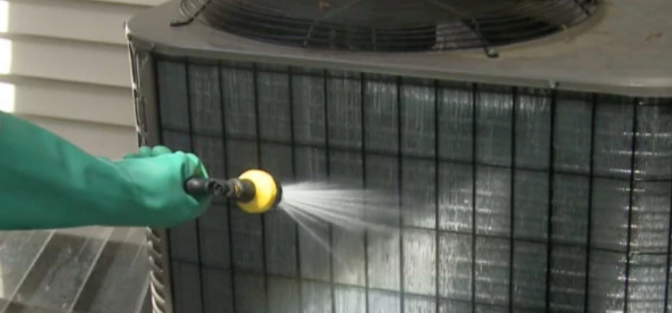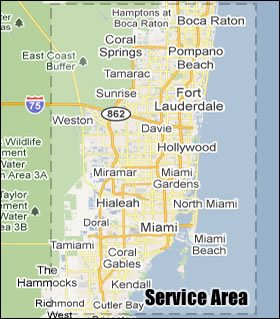Imagine a scorching summer day, and your air conditioner suddenly starts blowing warm air. Frustrating, right? Well, that’s a sign your AC might be iced over, and you may need professional AC Repair Boca Raton services in that case.
AC icing might sound like a chilling mystery, but it’s quite common. It occurs when frost or ice forms on the evaporator coil, hindering the AC’s ability to cool your home. Continue reading this post to explore why your AC gets iced over. We’ll also share simple DIY solutions to get rid of this problem.
How to Diagnose AC Icing
To tackle this icing issue, you must first pinpoint the root cause before you actually perform DIY fixes or call in AC Repair Boca Raton specialists. Start by checking for these warning signs:
- Reduced Cooling Performance: If your AC isn’t cooling your home as effectively as it used to, it could be a sign of icing. Reduced cooling performance often indicates the AC isn’t removing heat efficiently due to ice buildup.
- Unusual Noises: Pay attention to unusual sounds from your AC unit, such as hissing or gurgling. These noises may result from ice formation on the evaporator coil or other components, indicating an icing problem.
- Frost on the Evaporator Coil: Inspect the evaporator coil, which is typically located inside the indoor unit of your AC. If you see frost or ice accumulation on the coil, it clearly indicates icing.
- Restricted Airflow: Proper airflow is essential for efficient cooling. If airflow is hindered, it can contribute to AC icing.
Common Causes of AC Icing
Let’s find out why your AC is icing up. Three main culprits often trigger this freeze-fest:
- Dirty Air Filters: Over time, the air filters in your AC become clogged with dust and debris, obstructing the airflow through the system. Restricted airflow leads to a drop in temperature inside the AC unit, causing moisture in the air to freeze on the evaporator coil.
- Low Refrigerant Levels: Refrigerant is the substance that facilitates the cooling process in your AC. If there’s a leak or insufficient refrigerant, the evaporator coil won’t be able to absorb enough heat from the indoor air. As a result, the coil becomes too cold, causing condensation to freeze on its surface.
- Airflow Issues: Adequate airflow is crucial for maintaining the proper functioning of your AC. Obstructions around the unit, such as furniture or debris, can restrict the flow of warm air over the evaporator coil. The coil can become excessively cold without sufficient warm air, leading to icing.
DIY Fixes for AC Icing
Depending on the issue, there are DIY solutions to defrost your AC.
- Clean or Replace Air Filters: Regularly cleaning or replacing the air filters is essential to maintain proper airflow. Clean filters allow air to pass freely through the system, reducing the risk of icing. Check your AC’s user manual for guidance on filter maintenance.
- Recharge Refrigerant (if possible): Recharging the refrigerant should be performed by a qualified HVAC technician. If you suspect low refrigerant levels as the cause of icing, it’s best to contact a professional AC Repair Boca Raton company to diagnose and address the issue safely.
- Ensure Unobstructed Airflow: Inspect the area around your AC unit, both inside and outside your home. Remove any objects blocking the vents or obstructing the airflow path. It will ensure consistent airflow and prevent icing issues.
When to Call a Professional
While DIY fixes can work wonders, there are times when you may need help from a reliable HVAC Service Company. If your AC keeps icing over despite your best efforts or if you suspect a more complex issue, it’s time to call in AC Repair Boca Raton professionals. They have the expertise to diagnose and remedy AC problems efficiently.
Now that you understand why your AC gets iced over and how to fix it, you’re better equipped to keep cool during those sweltering summer days. Remember, regular maintenance is the key to a frost-free AC, so don’t let the ice win. Take immediate action whenever you notice these AC problems.



